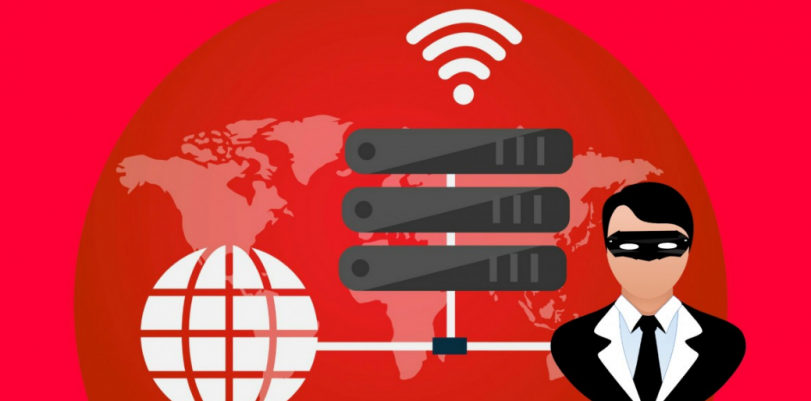As Internet-related services continue to diversify, we have come to understand the importance of manipulating our IP address to change the location we appear to be connected from. For instance, the practice is beneficial at the moment of bypassing censorship measures, or when unblocking video and streaming services that are geo-restricted.
Since both services perform somewhat similar activities, numerous people mix up VPNs, or Virtual Private Networks, with proxies. However, they are not the same, and they differ in more than one aspect.
Similarities and differences between proxies and VPNs
Proxies and VPN services operate in different ways. The former is a connection between your device and the broad network, in this case, the Internet: it is a mediator between the two entities, and it administrates the traffic that goes to and from your device to make it look that it is coming from the proxy’s IP number.
On the other hand, VPN services implement encryption to the user’s data, something that proxies fail to do. They are more versatile, but also generally more expensive. They provide privacy and anonymity on top of the location-spoofing capabilities. VPN brands create a virtual tunnel to transport the user’s IP and traffic, protecting the data from all external agents that may represent a threat.
Proxies can manage a higher number of connections in ratio to server resource than a standard VPN server, but are not as good as protecting the user’s identity or privacy, for that matter. Proxies are also slower than VPNs.
Usually, proxy services implement the HTTP connection protocol, which is fast but is good to load websites and nothing more because it can only handle HTTP traffic. The other prominent protocol (a rare one, at least when compared to the HTTP) is the SOCKS. It is considerably better as it can handle all connections, accepting every type of traffic, and offers encryption.
Best proxy services in 2019
Hide My Ass
HMA, or Hide My Ass, also offers a relatively effective VPN option. However, its proxy service is outstanding, as well, as the servers are fast and the network of available location is incredibly broad.
The provider operates hundreds of IP:PORT proxy servers in 64 countries and they are obtainable for free in the website. HMA keeps track of working proxies and lets you search for different anonymity and speed levels.
HMA also has a quick setup for every major browser on the server list page, and each one shows the country, port, protocol, and protection level, not to mention speed connection time meters. The company sweetens the pot by offering a web proxy with no ads and SSL (Secure Sockets Layer) encryption.
Freeproxylist.org
In FreeProxyList.org, users can also see a detailed server list with an impressive set of filters to look for the most appropriate and suitable port, location, privacy configurations, and speed/ping times. If you are annoyed by CAPTCHA screens, though, this option is probably not for you, but if you are willing to overlook that details, you will enjoy an outstanding number of proxies and better search options than HMA.
For a steep price, you can also enjoy so-called VIP service, but you would be better off with the standard version or with a regular, but reliable, VPN provider.
CyberGhost
Another top VPN provider, CyberGhost is also in a position to offer a free web proxy. The only drawback is that there are only four servers, located in Germany, the United States, the United Kingdom, and Romania.
However, there are several exciting features to speak of: you can disable cookies, scripts, and other things one by one. The design and overall layout are user-friendly and visually attractive, but the high server loads mean that the speeds are not always top-notch.
Far more options and offerings in a VPN service
Whereas proxy servers are only suitable for bypassing censorship and unblocking content, they don’t offer anonymity and privacy. VPN technology, on the other hand, provides those traits and more: since it can hide the user’s IP address and traffic and replace it with one for temporary use (the person can even choose the location,) VPNs are able to help you dodge hackers, malware developers, censorship, government surveillance, copyright trolls, and even targeted advertising.
Keeping your traffic anonymous is necessary for several circumstances, so it is vital that if you are performing activities that require more than just content unblocking, that you protect your privacy with VPN encryption.
TorGuard: VPN AND anonymous proxy!
If you are looking for a company that can provide you with both VPN and proxy features, then TorGuard should be at the top of your priority list. The VPN feature costs $10 per month and comes with the chance of using several protocols, including OpenVPN (TCP and UDP,) OpenConnect, SSTP, L2TP, and IPSec. It also has 3,000 servers in 55 nations to guarantee the best streaming and content unblocking experience, along with fast speeds.
For $5.95 per month, users can enjoy a separate service: the anonymous proxy. It has unlimited speeds and bandwidth, over 2,000 elite IP proxies in more than 50 nations, and fast SOCKS5 proxy servers in 8 countries. It allows five simultaneous connections and offers support for SOCKS5 proxy + HTTP/SSL.
How to get TorGuard
- Go to its website www.torguard.net or get it in the Google Play Store (Android) or the App Store (iOS)
- Register for the VPN service after you choose your plan and payment method
- Create a username and password
- Log in to your account with your credentials
- Choose your preferred service (VPN or proxy) and server
- Connect to the virtual server and enjoy the benefits
In conclusion, TorGuard is the most recommended option for you, whether you want a VPN or a web proxy. If you’re going to try other alternatives; HMA, Freeproxylist.org, and CyberGhost are useful choices.
